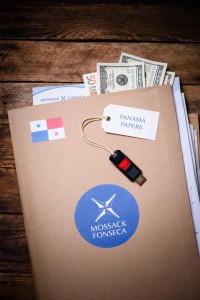Corporate expenses and cheeky tax paying: deductible vs. non-deductible
Less than a week has passed since we learnt that Emilio Cuatrecasas, owner of the largest fiscal advisory firm in Spain, just hired former Deputy Prime Minister Soraya Saenz de Santa María. In 2015, Mr. Cuatrecasas pleaded guilty to 8 counts of tax fraud in exchange for a rather lenient 2-year suspended imprisonment -suspended- conviction agreed with both the Prosecutor and the State L awyer, the latter working on direct instructions of Mrs. Saenz de Santa María, when the PP party was in power.
awyer, the latter working on direct instructions of Mrs. Saenz de Santa María, when the PP party was in power.
What’s interesting of this case -besides the fairly obvious connection between Mr. Cuatrecasas’ favourable Court ruling and the hiring of the instigator of such advantageous outcome- is the nature of the tax fraud: deducting personal outlays as company expenses. In this case, it was done in a grand scale where, for example, servants hired for his personal residences or his privately used yacht, electrical appliances, decoration and generally, maintenance of his personal assets, were all introduced in the company balance sheet as deductible expenses. In the end, Mr. Cuatrecasas had to pay over 3 mm Euros plus 1 mm Euro in interest to avoid doing jail time.
Spain is no different from any other country when it comes to tax deductible expenses. But what are they? Broadly speaking, they are those deemed helpful and appropriate for a business, as well as necessary and reasonable. More specifically, this what the law says:
Deductible expenses: employes salaries and social security, rentals (office or part of a home used to work from) and associated expenses, equipment and supplies, repair and maintenance, stationery, external advisors, VAT (where it is not claimed) and uniforms not susceptible of private use, to name a few. Vehicles not exclusively used for business purposes will be deductible on prorate, with a maximum of 50% (save for cargo, transport and similarly used vehicles which will be 100%). Travel expenses, meals (maximum of 1% of turnover) or Christmas presents can be deducted if they are associated with business and this can be proven when required.
Non-deductible expenses: Director’s salaries, dividends, fines, services provided by providers based in a tax haven, guard dogs, clothes (including lawyer’s suits), parfums, beauty treatments, sunglasses or mobile phones (where it is no possible to show that they are exclusively used for a business purpose), weddings, weekly “Mercadona” personal shopping and many other non-expenses habitually picked up by tax inspectors.
Finally, deductible expenses must be provable by means of regular or simplified invoices, as mere receipts will not be valid.






 Spanish IHT is once again a matter for controversy: according to El Pais newspaper, the number of people who have given up their inheritance has gone up by 21% since last year. And there is only one reason cited for this increase: the inability of many potential inheritors to pay a tax bill unless they first inherit and sell the asset in question, generally a property, in a very challenging market.
Spanish IHT is once again a matter for controversy: according to El Pais newspaper, the number of people who have given up their inheritance has gone up by 21% since last year. And there is only one reason cited for this increase: the inability of many potential inheritors to pay a tax bill unless they first inherit and sell the asset in question, generally a property, in a very challenging market.